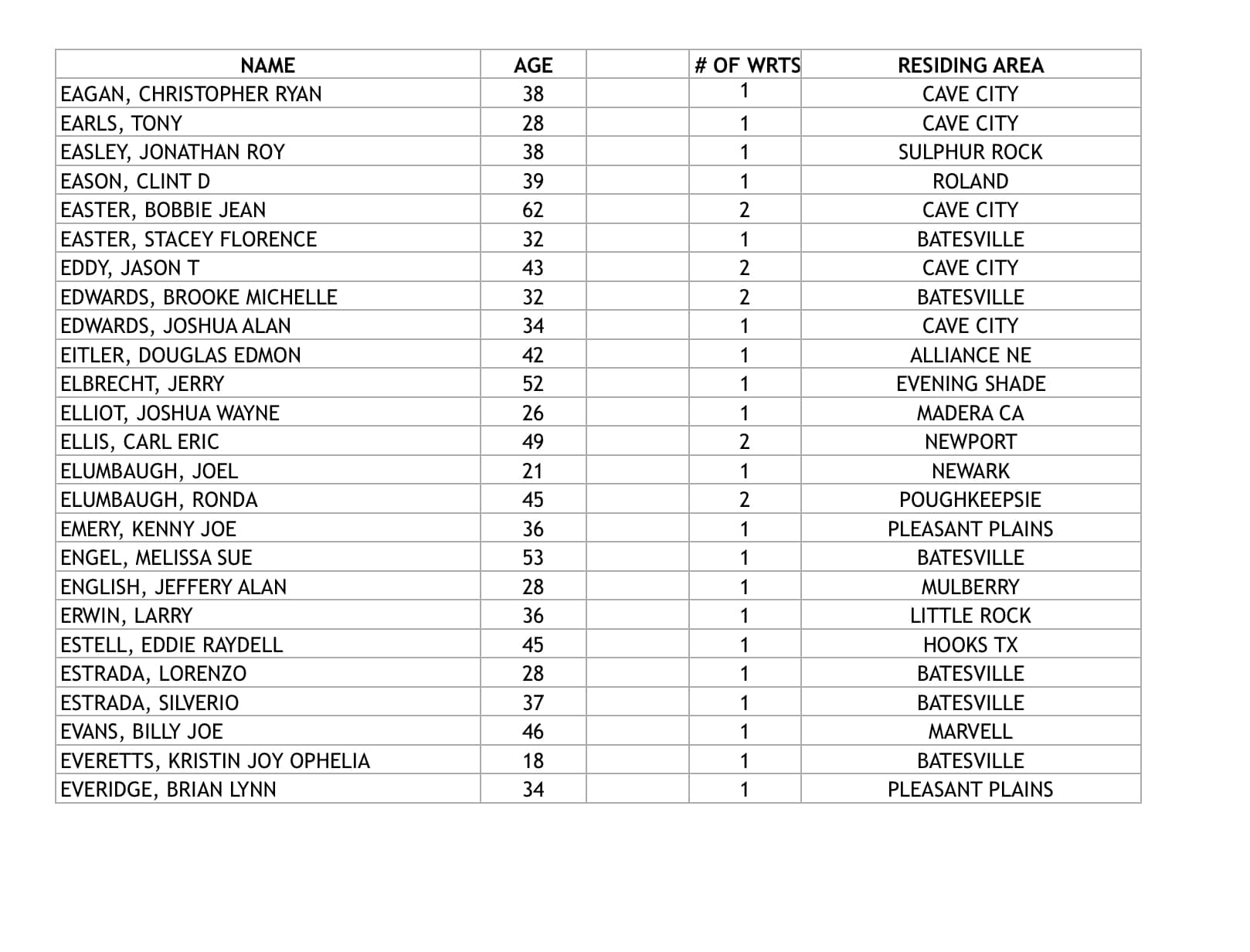The PPP Warrant List is a critical tool for individuals and businesses involved in the Paycheck Protection Program (PPP). This list plays a significant role in tracking and monitoring compliance, ensuring that funds are used appropriately, and safeguarding against potential fraud. As the PPP continues to evolve, understanding the implications of the warrant list becomes increasingly essential for borrowers and lenders alike. In this article, we will delve into the intricacies of the PPP Warrant List, exploring its purpose, structure, and the potential consequences of being on this list.
In the wake of the COVID-19 pandemic, the U.S. government launched the Paycheck Protection Program to provide financial relief to struggling businesses. However, with the influx of applications, concerns regarding fraud and misuse of funds emerged, leading to the establishment of the PPP Warrant List. This list serves as a safeguard, ensuring that those who engage in fraudulent activities are held accountable and that legitimate borrowers are not penalized unfairly. It is crucial for anyone involved in the PPP to familiarize themselves with this list and its implications.
As we dissect the PPP Warrant List, we will address key questions surrounding its function, the process of being added to the list, and the steps one can take to rectify their status. Whether you are a borrower seeking to understand your standing or a lender looking to ensure compliance, this guide will provide valuable insights into the PPP Warrant List and its significance in the realm of financial assistance.
What is the PPP Warrant List?
The PPP Warrant List is a compilation of individuals and businesses that have been flagged for potential fraudulent activity related to the Paycheck Protection Program. This list is maintained by the Small Business Administration (SBA) and serves as a reference for lenders and government agencies to identify applicants who may have misused funds or provided false information during the application process.
How are Individuals and Businesses Added to the PPP Warrant List?
Individuals and businesses can be added to the PPP Warrant List through various means, including:
- Fraudulent application submissions
- Inconsistent information provided during the application process
- Failure to meet eligibility criteria as outlined by the SBA
- Reports from whistleblowers or concerned parties
What are the Consequences of Being on the PPP Warrant List?
Being on the PPP Warrant List can have severe implications for both individuals and businesses. Consequences may include:
- Ineligibility for future PPP loans or financial assistance programs
- Legal action or investigations into fraudulent activities
- Damage to reputation and potential loss of business
How Can Individuals and Businesses Check the PPP Warrant List?
Checking the PPP Warrant List is vital for borrowers and lenders alike. While the list is not publicly available in its entirety, individuals can take the following steps:
- Contact the Small Business Administration (SBA) directly for information on their status.
- Consult with legal counsel to understand any potential implications.
- Review any communications received from lenders or the SBA regarding application status.
What Should You Do if You Find Yourself on the PPP Warrant List?
If you discover that you or your business is on the PPP Warrant List, it is essential to take immediate action:
- Gather all relevant documentation related to your PPP application.
- Consult with a legal expert specializing in federal lending and fraud.
- Communicate with the SBA to understand the reasons for the listing and explore options for resolution.
Can You Appeal Your Status on the PPP Warrant List?
Yes, individuals and businesses can appeal their status on the PPP Warrant List. The process typically involves:
- Submitting a formal appeal to the SBA outlining your case.
- Providing evidence and documentation that supports your claims.
- Engaging legal counsel to assist with the appeal process.
Understanding the Importance of the PPP Warrant List for Lenders
For lenders, the PPP Warrant List is a crucial resource for mitigating risk and ensuring compliance. By reviewing the list before approving loans, lenders can protect themselves from potential losses associated with fraudulent applications. Additionally, staying informed about applicants' statuses helps maintain the integrity of the PPP program.
What Role Do Whistleblowers Play in Maintaining the PPP Warrant List?
Whistleblowers play a significant role in identifying fraudulent activities related to the PPP. Their reports can lead to investigations and subsequent additions to the PPP Warrant List. This encourages accountability and promotes ethical behavior among borrowers. Whistleblower protections are also in place to shield individuals who report misconduct from retaliation.
How Can Businesses Protect Themselves from Being Added to the PPP Warrant List?
To avoid being placed on the PPP Warrant List, businesses should adhere to best practices during the application process:
- Ensure all information provided is accurate and truthful.
- Consult with financial advisors to ascertain eligibility before applying.
- Maintain thorough documentation of all transactions and communications related to the PPP.
Conclusion: The Significance of the PPP Warrant List
In conclusion, the PPP Warrant List is a vital component of the Paycheck Protection Program that serves to protect the integrity of the lending process. Understanding its function, implications, and the steps to take if one finds themselves on the list is essential for borrowers and lenders alike. By staying informed and adhering to best practices, businesses can navigate the complexities of the PPP and ensure compliance while benefiting from the assistance it offers.




